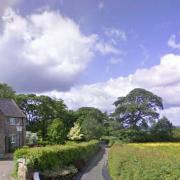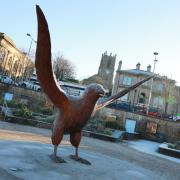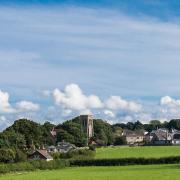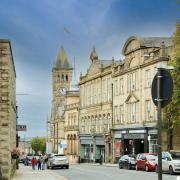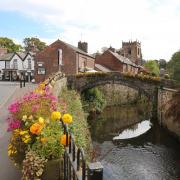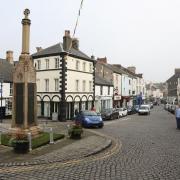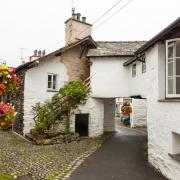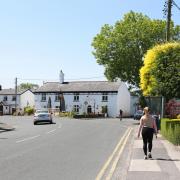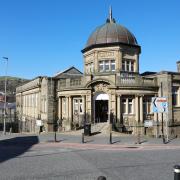How does one service station in the north west get it so right when so many get it horribly wrong? Martin Pilkington tries to find out
Most of us who travel on Britain’s motorways enter the service station with a feeling of foreboding. We are usually faced with the sort of flaccid food we would never touch in normal circumstances and at prices we would never countenance paying.
So how has one passionate family managed to get it so right when others operating in this captive market seem to get it so horribly wrong? It’s probably because Westmorland Limited, owners of Tebay Services, are like no other. For instance, there are no franchises.
Most service stations are identical and anonymous, serving the same franchised fare to the same, glum motorists. You wouldn’t know from your surroundings if you were in Norfolk or Northumberland. But at Tebay, the passion is for locally sourced produce sold in a distinctive setting. It’s this uniqueness that meant it was the only business of its type awarded five stars by VisitEngland last year.
Even the origins of the company are different. Chief executive Sarah Dunning explains: ‘Back in the late 60s the M6 was built through the west corner of my parents’ sheep and beef-cattle farm.
‘The Department of Transport then decided this site would be a service area but the oil giants, the natural bidders for motorway services, weren’t very interested in this back-of-beyond stretch. So mum and dad ended up winning the bid.’
What started with two petrol pumps, a small shop and a cafe on the northbound side now employs 500 people, with the southbound services added in the 1990s, plus a hotel, the nearby Junction 38 truck-stop and the Rheged tourism and conference site. But agricultural roots remain strong and deep. ‘That history – started by a farming couple – is why we are a bit different. It was an extension of their farm business at that time and, in a way, still is,’ says Sarah, who has been running it since 2005, with her father still actively involved.
Their fields provide some of the stunning views framed for visitors in the restaurant windows on the southbound services, and there is similarly clear evidence of that continuing agricultural link in the destiny of the lamb, mutton and beef from the 800-acre farm.
‘Most of the sheep and cattle come into the business as meat. Four years ago we built a full cutting-room here,’ Sarah says. ‘It creates a very strong identity at the heart of the business and in many ways drives a lot of our consumer offer, because we cook around the carcase rather than the other way round.’
Head butcher Dave Morland illustrates that approach. ‘For the pies on sale in our retail area we supply the meat, it’s all in-house. Because we use the whole carcase you’ve got to come up with a menu that uses it all. Both the hotel and Rheged help that. So presently the hotel is running a seamed beef rump, the lads have just finished preparing that, and a rolled mutton shoulder, we supply that too.’
Dave takes me to meet farm manager Bob Day and see the animals grazing. ‘The cattle have done well in the wet summer, it hasn’t bothered them one iota,’ says Bob. ‘But the sheep have taken a caning.’
Both men are evidently proud of the cattle we stop to examine. ‘We have Galloways and Blue Greys and native breeds - that incorporates the Aberdeen Angus, the South Devon, the Hereford and the Luing, which is a Scottish breed,’ says Dave. ‘You’ve got to remember we are on Shap Fell.
You need an animal that suits the terrain, a hardy animal. We couldn’t get away with Limousins and Belgian Blues. They’d just stand behind a wall and shiver.’
Owning the source of supply means they can cooperate to improve quality with the two men giving each other feedback. The results are best seen in the fine butchery displays, but arguably best tasted in their pies.That regionality fundamental to the meat-retailing part of the organisation drove the creation of the farm shops, added to both sides in 2004.
‘They were for us a very natural extension of what we do as a business, we have always had a committed local sourcing policy - it has always been about artisan produce,’ says Sarah. ‘We created the farms shops as it felt natural for our customers to buy what they were eating cooked here already.’
Ex-Harrods buyer Alex Evans was recruited to direct purchasing for them. ‘We start local but are on the crossroads for those travelling cross-country as well as north-south, so we carry stuff from Lancashire, North Yorkshire, Northumberland and Cumbria as well,’ he says. ‘And southbound we carry lots of things from Scotland as that’s mostly the first stop for people leaving that country and they want to take something Scottish back home.’
It really is a delicatessen, with customers taking pleasure in browsing. ‘The people who come in take their time and really explore,’ says Alex. This lengthening of overall journey-time once led to adverse comment from the Ministry. Tebay’s answer was a visit here helped to relax drivers.
That relaxed quality is apparent in the on-site hotel too. The views are even better than the restaurant’s - a little waterfall one way and the looming hills the other.
The gamble that Mr and Mrs Dunning took in the late 60s paid off. Motorway traffic continues to grow, and Tebay works to ensure people come back – and buy more.
‘It is one of the ironies of the motorway service sector in Britain that generally you could be anywhere in the country, they don’t tend to reflect their region,’ says Sarah. ‘But for us it is about a sense of place. Even the buildings are like old Cumbrian barns. Whatever you think of us you do know that you’re in Cumbria.’
Sarah and the team are due to open another service station on the M5 in Gloucestershire during 2013. When people see what can be done, they might start questioning why all service stations can’t be like this.



